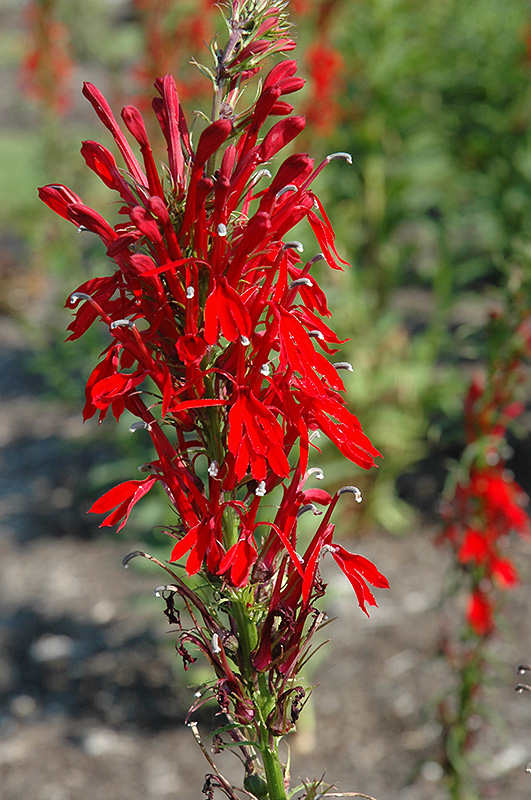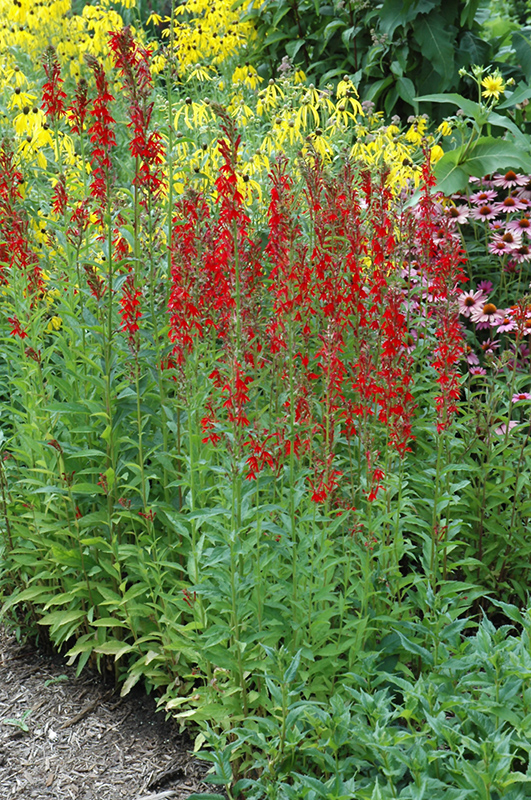>> Home
Plant Height: 24 inches
Flower Height: 3 feet
Spacing: 20 inches
Sunlight:
![]()
Hardiness Zone: 3
Ornamental Features
Cardinal Flower features showy spikes of scarlet flowers rising above the foliage from mid summer to early fall. The flowers are excellent for cutting. Its pointy leaves remain dark green in color throughout the season.
Landscape Attributes
Cardinal Flower is an herbaceous perennial with an upright spreading habit of growth. Its relatively coarse texture can be used to stand it apart from other garden plants with finer foliage.
This plant will require occasional maintenance and upkeep, and is best cleaned up in early spring before it resumes active growth for the season. It is a good choice for attracting butterflies and hummingbirds to your yard. Gardeners should be aware of the following characteristic(s) that may warrant special consideration;
- Self-Seeding
Cardinal Flower is recommended for the following landscape applications;
- Mass Planting
- General Garden Use
Planting & Growing
Cardinal Flower will grow to be about 24 inches tall at maturity extending to 3 feet tall with the flowers, with a spread of 24 inches. When grown in masses or used as a bedding plant, individual plants should be spaced approximately 20 inches apart. It grows at a fast rate, and under ideal conditions can be expected to live for approximately 3 years. As an herbaceous perennial, this plant will usually die back to the crown each winter, and will regrow from the base each spring. Be careful not to disturb the crown in late winter when it may not be readily seen!
This plant should be grown in a location with partial shade. Keep it away from hot, dry locations that receive direct afternoon sun or which get reflected sunlight, such as against the south side of a white wall. It is quite adaptable, prefering to grow in average to wet conditions, and will even tolerate some standing water. It may require supplemental watering during periods of drought or extended heat. It is not particular as to soil pH, but grows best in rich soils. It is somewhat tolerant of urban pollution. This species is native to parts of North America, and parts of it are known to be toxic to humans and animals, so care should be exercised in planting it around children and pets.

